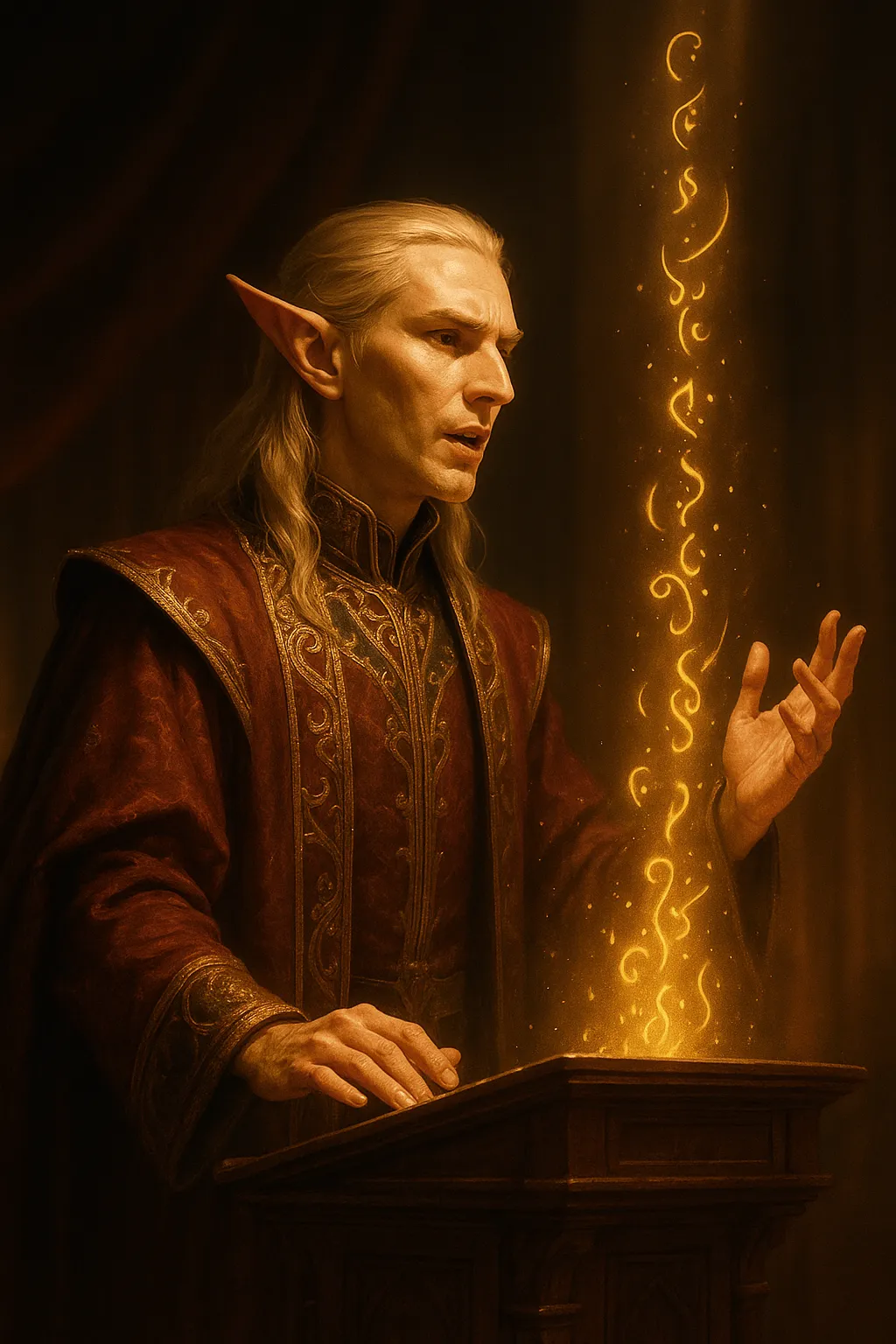
They smile often — but their eyes rarely follow suit.
Among the many castes that shape elven society, the aristocrats stand as both stewards of tradition and embodiments of refined power. Clad in embroidered robes, draped in centuries of wealth, and bearing the weight of ancestral expectations, elven aristocrats are more than noble rulers — they are the living memory of their people. To speak with one is to brush against a thousand years of rehearsed elegance, veiled diplomacy, and a heritage guarded as fiercely as any fortress.
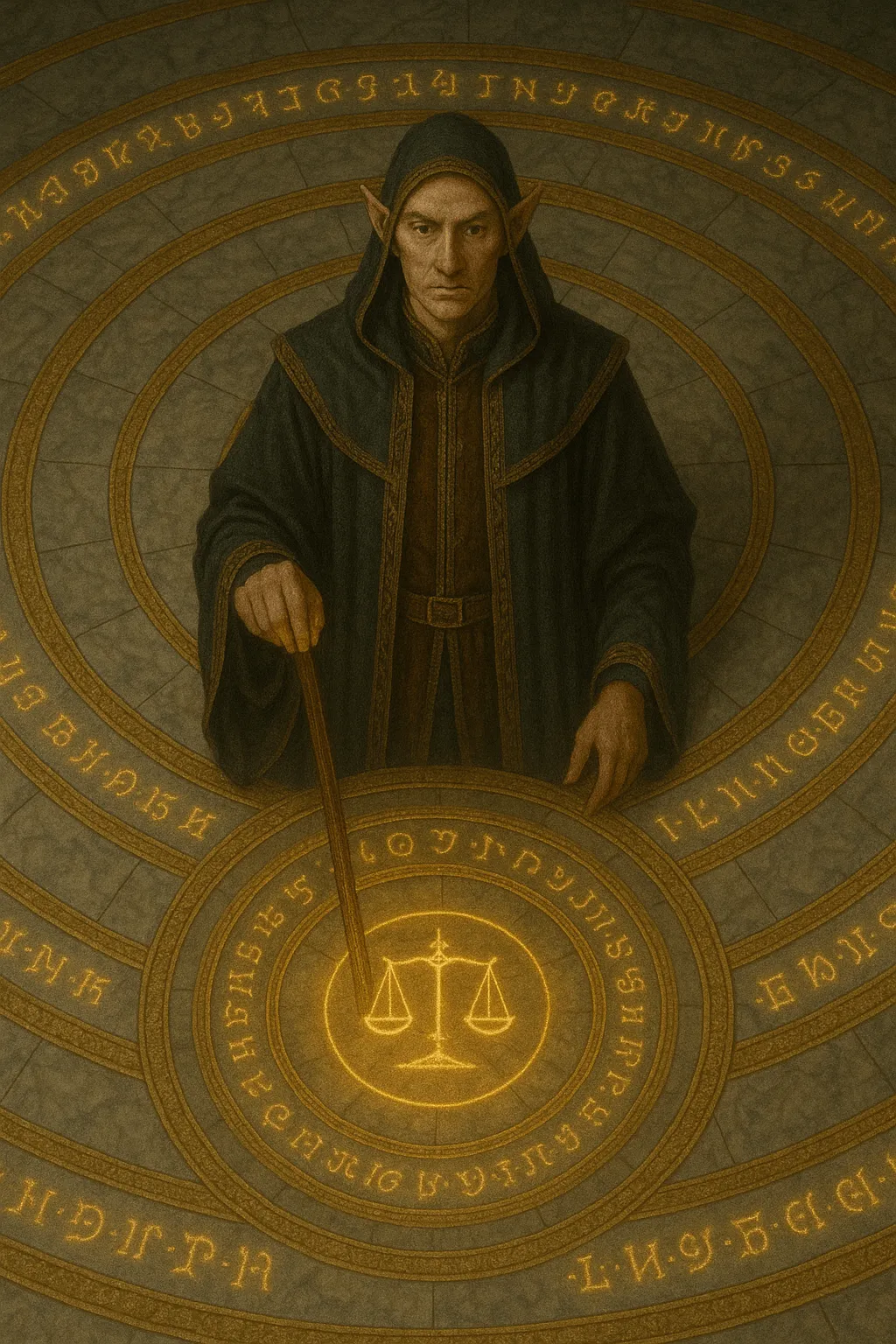 Unlike human nobility, whose bloodlines rise and fall within a few generations, elven aristocracies endure with glacial patience. Estates are not bought or sold, but bound through ancient pacts, arcane seals, and blood-rites penned in tongues older than most mortal nations. Titles are less about governance and more about preservation — of art, lineage, territory, and magical influence. An aristocrat may rule no army, but their signature might still carry the weight of a kingdom's law if whispered into the right ears.
Unlike human nobility, whose bloodlines rise and fall within a few generations, elven aristocracies endure with glacial patience. Estates are not bought or sold, but bound through ancient pacts, arcane seals, and blood-rites penned in tongues older than most mortal nations. Titles are less about governance and more about preservation — of art, lineage, territory, and magical influence. An aristocrat may rule no army, but their signature might still carry the weight of a kingdom's law if whispered into the right ears.
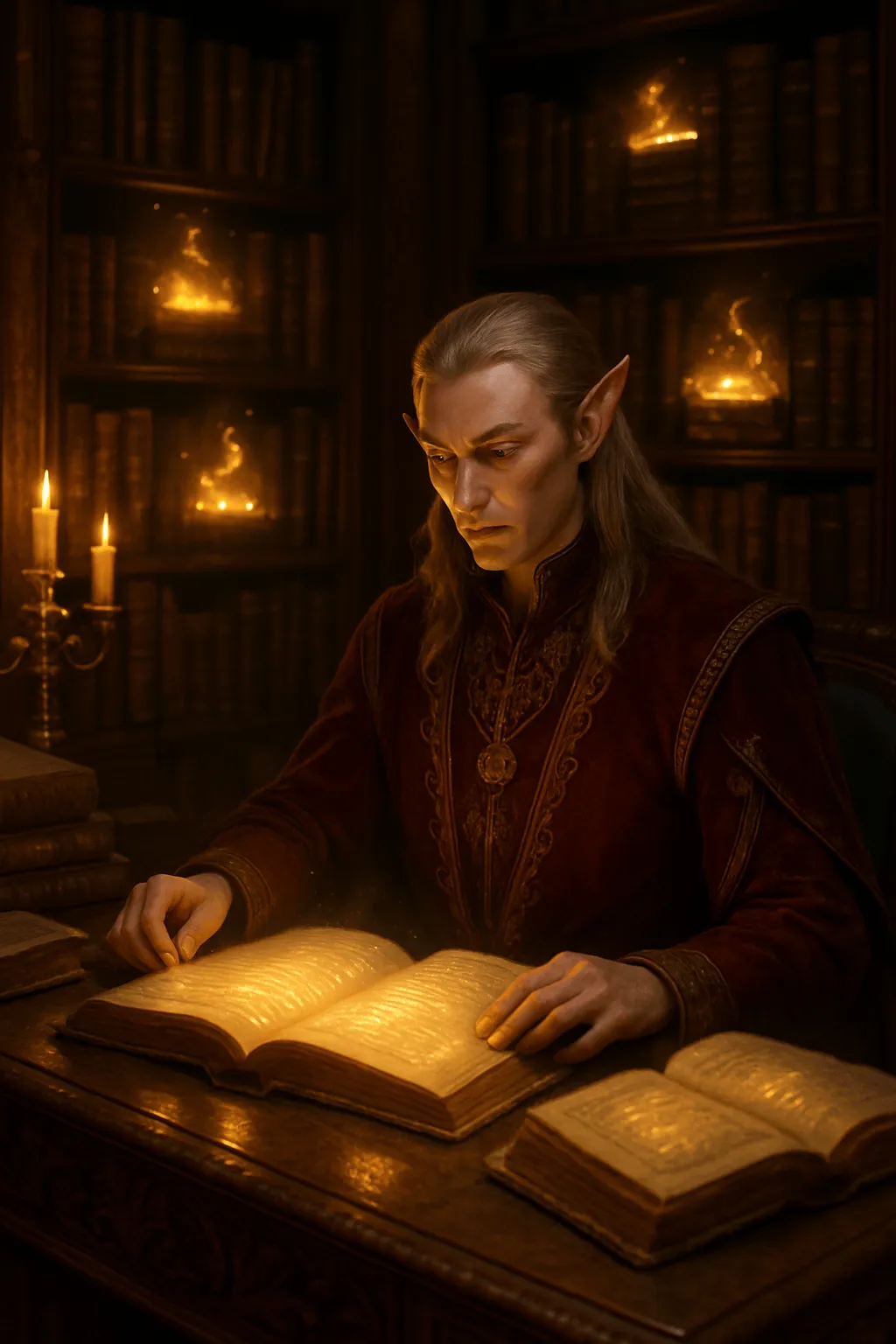 The aristocratic class often serves as patrons to the arcane and the artistic alike. Many of the great works attributed to nameless elven eras — floating amphitheaters, living poems etched into trees, entire orchestras composed of wind and light — were commissioned or curated by aristocrats. They see it as their duty to preserve beauty and power in equal measure. Whether they do so out of love for their culture or a fear of decline is a matter of debate even among their own kind.
The aristocratic class often serves as patrons to the arcane and the artistic alike. Many of the great works attributed to nameless elven eras — floating amphitheaters, living poems etched into trees, entire orchestras composed of wind and light — were commissioned or curated by aristocrats. They see it as their duty to preserve beauty and power in equal measure. Whether they do so out of love for their culture or a fear of decline is a matter of debate even among their own kind.
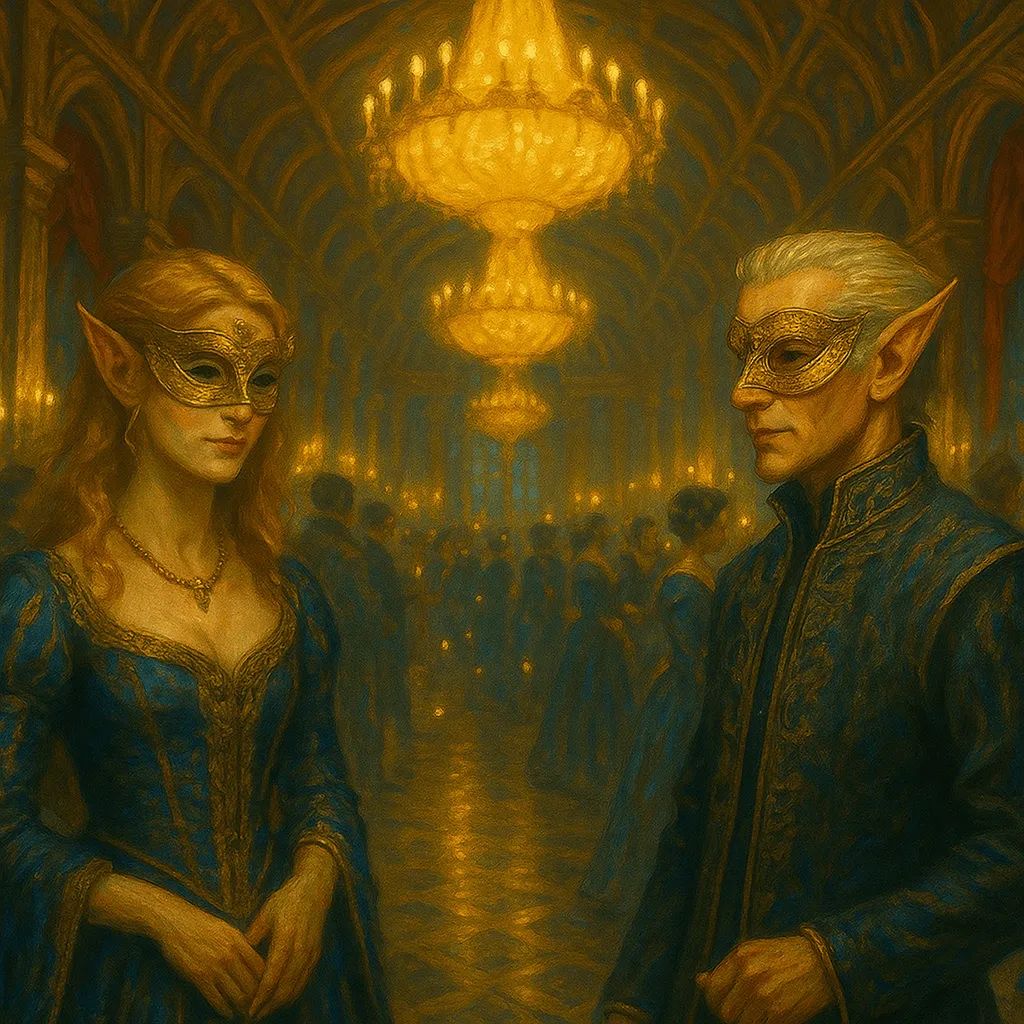 Within their courts, time itself seems stretched thin. A single conversation might take hours, layered with meanings upon meanings, and guests are expected to understand both spoken and unspoken etiquette. Interrupting is a faux pas; disagreeing too quickly is worse. Outsiders often mistake elven politeness for warmth, unaware that every word is a move on a board few are allowed to see. The aristocrats, for their part, rarely reveal their thoughts plainly. They smile often — but their eyes rarely follow suit.
Within their courts, time itself seems stretched thin. A single conversation might take hours, layered with meanings upon meanings, and guests are expected to understand both spoken and unspoken etiquette. Interrupting is a faux pas; disagreeing too quickly is worse. Outsiders often mistake elven politeness for warmth, unaware that every word is a move on a board few are allowed to see. The aristocrats, for their part, rarely reveal their thoughts plainly. They smile often — but their eyes rarely follow suit.
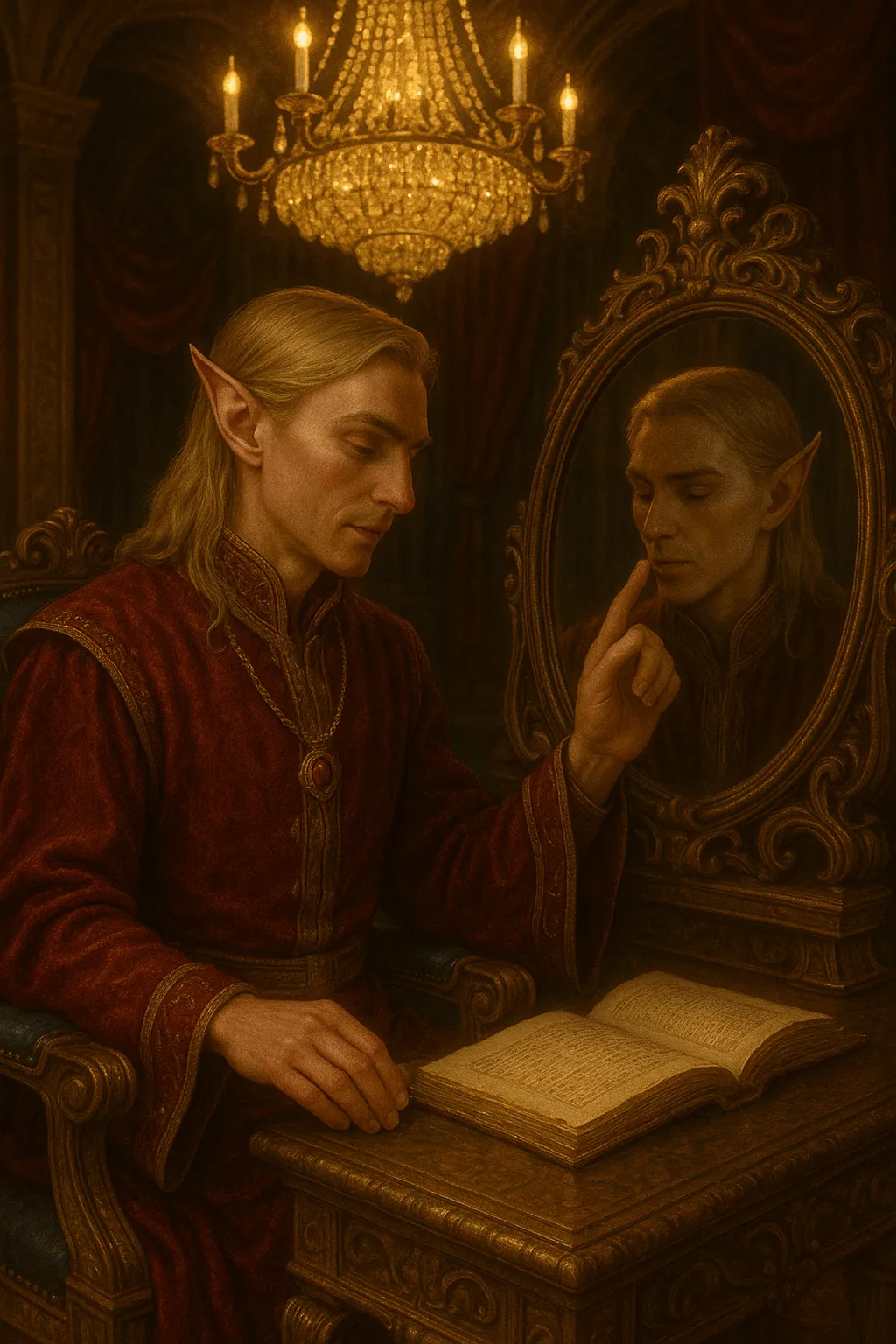 Magic, too, is woven deeply into the aristocratic role. While they are not always spellcasters themselves, their bloodlines frequently possess latent talents, subtle enchantments woven into their very presence. A room feels colder when they disapprove. Wine tastes sweeter when they are pleased. These effects are seldom overt, but never accidental.
Magic, too, is woven deeply into the aristocratic role. While they are not always spellcasters themselves, their bloodlines frequently possess latent talents, subtle enchantments woven into their very presence. A room feels colder when they disapprove. Wine tastes sweeter when they are pleased. These effects are seldom overt, but never accidental.
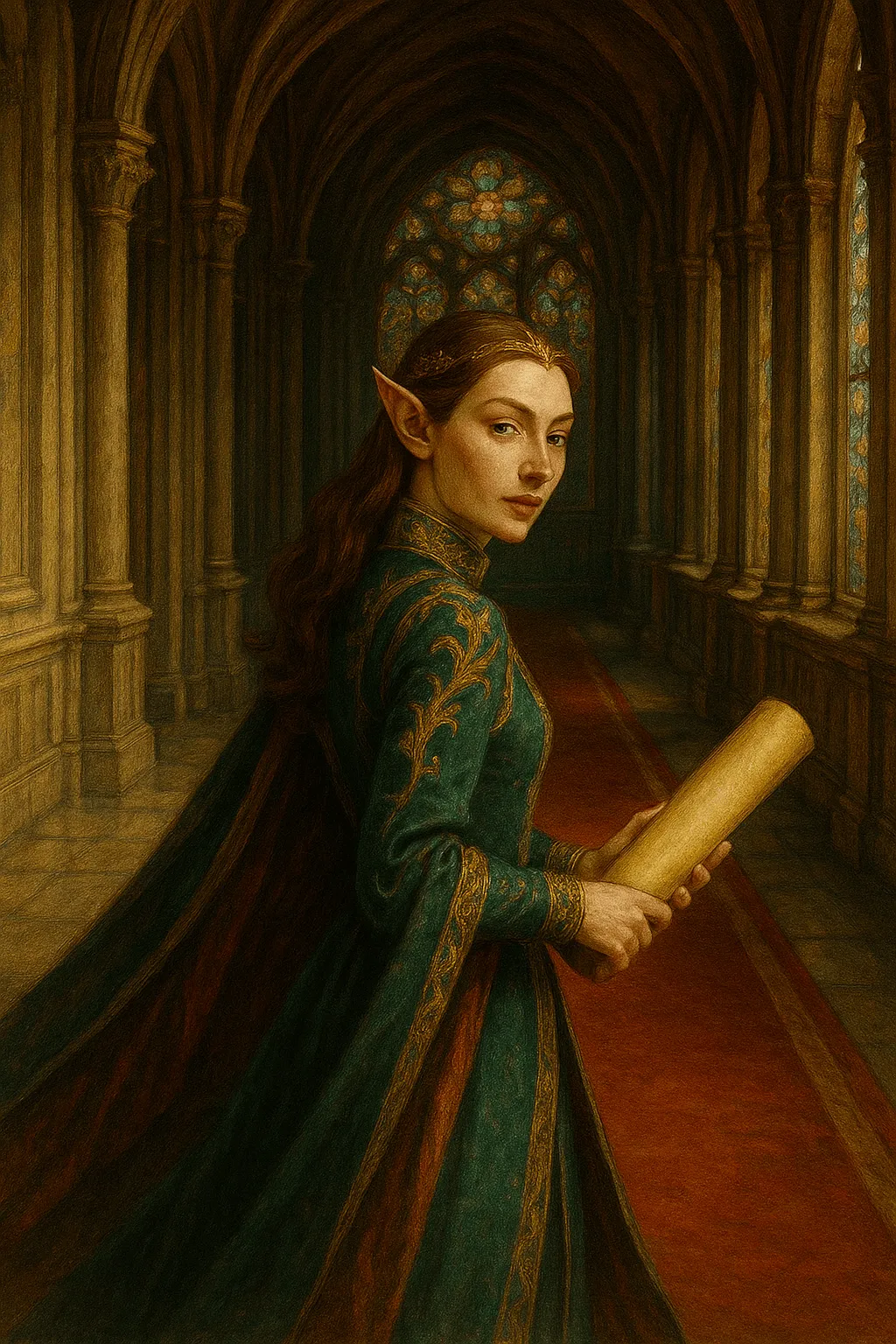 Despite their elegance, elven aristocrats are not universally beloved. In distant provinces and among younger elves, their aloofness is a source of frustration. To some, they are keepers of a crumbling legacy — incapable of adapting, too proud to yield. There are whispered tales of aristocrats who vanished during uprisings, their estates swallowed by wild magic, their lineages struck from the ledgers by choice or necessity. Still, no rebellion against their kind has ever endured long; the aristocracy always returns, as enduring as the stones beneath their villas.
Despite their elegance, elven aristocrats are not universally beloved. In distant provinces and among younger elves, their aloofness is a source of frustration. To some, they are keepers of a crumbling legacy — incapable of adapting, too proud to yield. There are whispered tales of aristocrats who vanished during uprisings, their estates swallowed by wild magic, their lineages struck from the ledgers by choice or necessity. Still, no rebellion against their kind has ever endured long; the aristocracy always returns, as enduring as the stones beneath their villas.
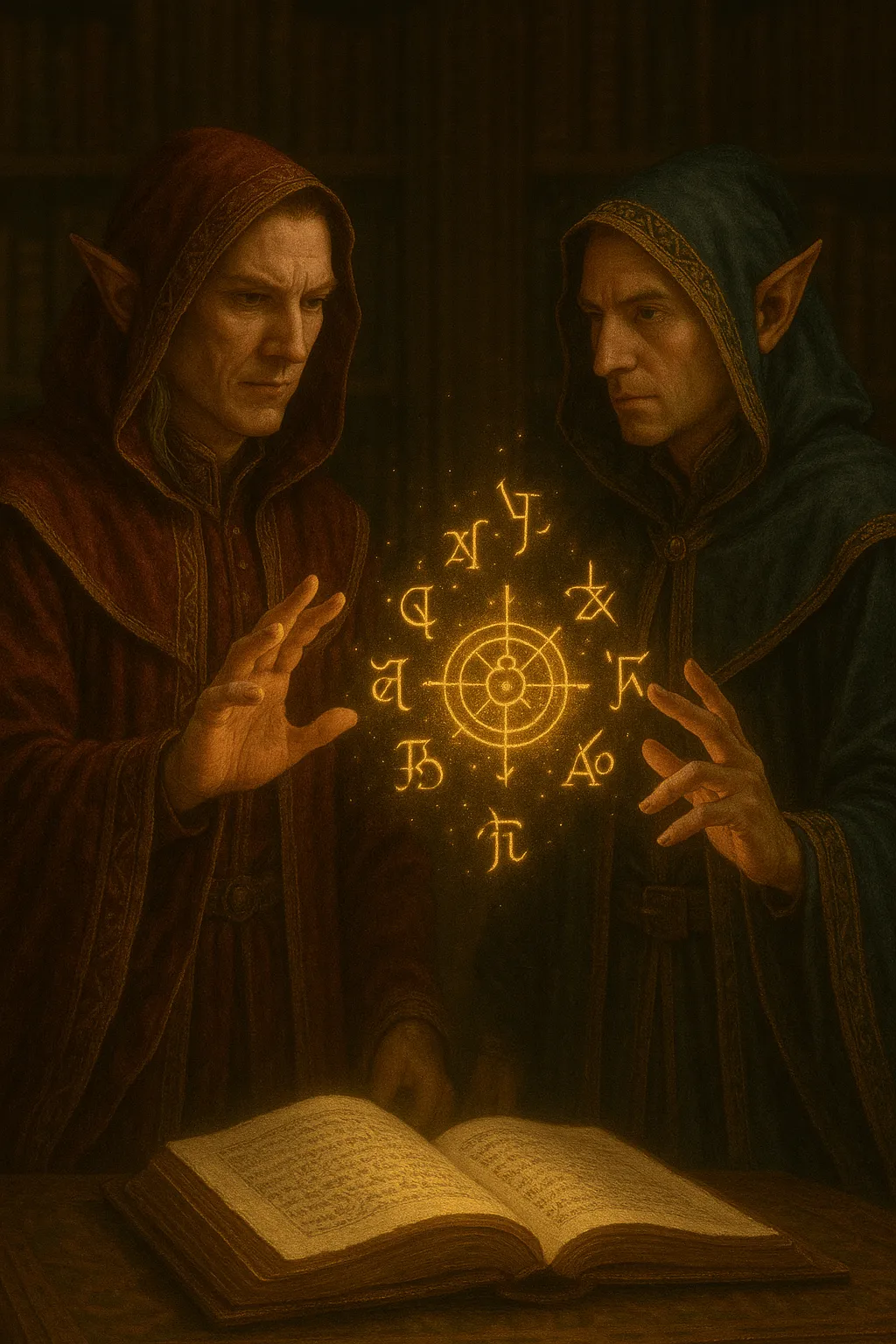 It is said that when an elven aristocrat dies, their soul does not flee immediately. Instead, it lingers for a season — walking the marble corridors of their estate, touching favorite tomes, attending imagined soirées with long-dead guests. Only when the last candle is snuffed and their memory ritually sealed do they depart. Whether this belief is truth or tradition, no one can say — for no aristocrat would ever admit to fearing death, much less clinging to their halls beyond it.
It is said that when an elven aristocrat dies, their soul does not flee immediately. Instead, it lingers for a season — walking the marble corridors of their estate, touching favorite tomes, attending imagined soirées with long-dead guests. Only when the last candle is snuffed and their memory ritually sealed do they depart. Whether this belief is truth or tradition, no one can say — for no aristocrat would ever admit to fearing death, much less clinging to their halls beyond it.
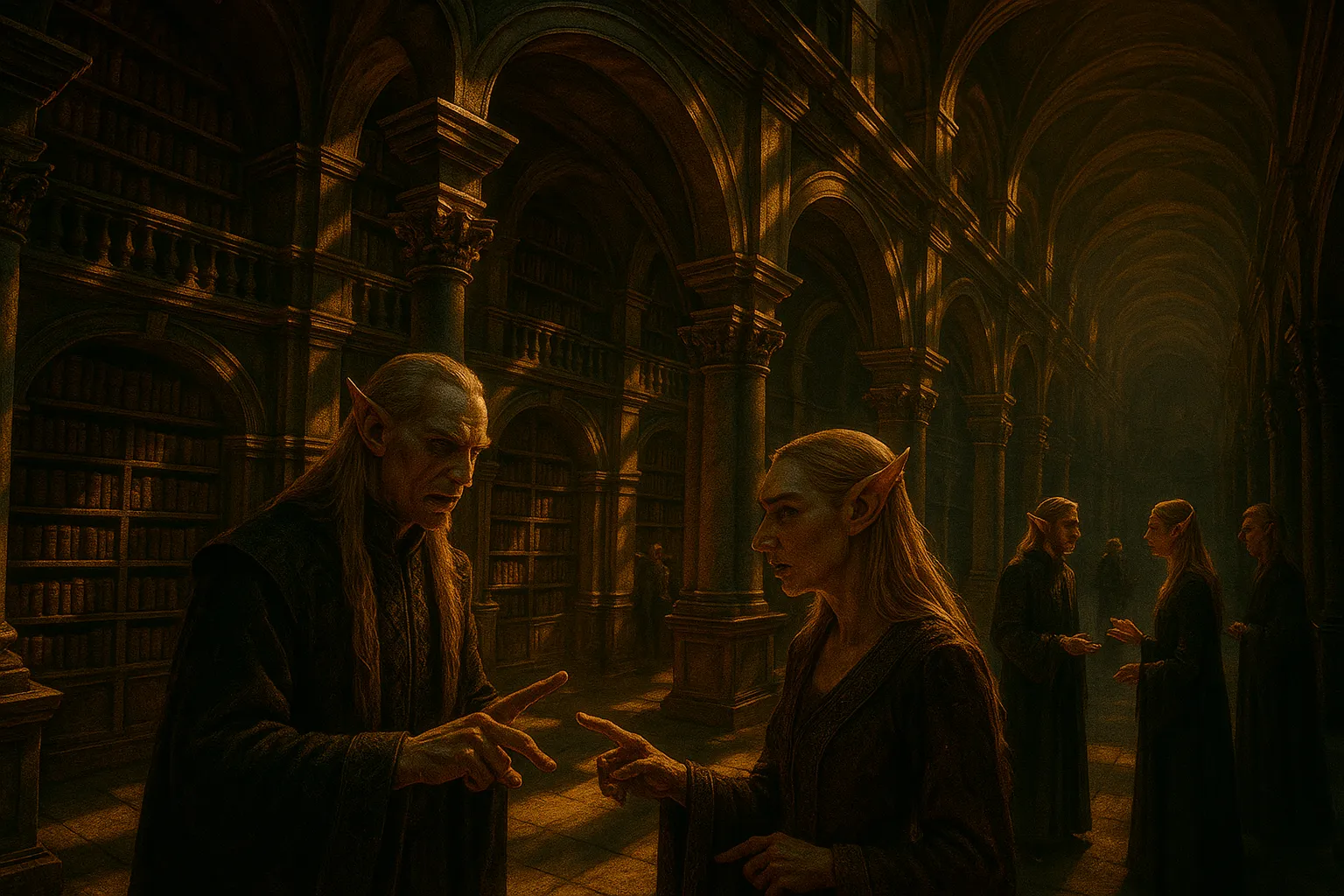 Their allies include high mages, elder artisans, and spirit-bound advisors. Their enemies are harder to define, for an aristocrat never calls someone an enemy directly — they simply stop inviting them. Those who fall from their favor often find entire cities closed to them, as if by some unspoken accord. There are worse fates than exile, but few as humiliating.
Their allies include high mages, elder artisans, and spirit-bound advisors. Their enemies are harder to define, for an aristocrat never calls someone an enemy directly — they simply stop inviting them. Those who fall from their favor often find entire cities closed to them, as if by some unspoken accord. There are worse fates than exile, but few as humiliating.
Yet for all their flaws — their pride, their games, their stubborn grip on the past — the elven aristocrats remain a cornerstone of elven civilization. They are the ink in the scroll, the signature on the treaty, the host of the eternal masquerade. And so long as their chandeliers burn and their names are remembered, they will always hold a place among the halls of power — whether welcome or not.
The following magical heirlooms are fictional and lore-based in nature. Each one is an affiliate link to a real-world item on Amazon that we've hand-selected to complement this artifact's lore.


If you click a link and buy an item, we may earn a commission.It costs you nothing extra, but can help keep this little corner of the internet glowing.
What does this mean?
Never empties, rarely judges—perfect for parties, peace talks, and poorly planned quests.

Tonight, you can choose to be whoever you want to be.
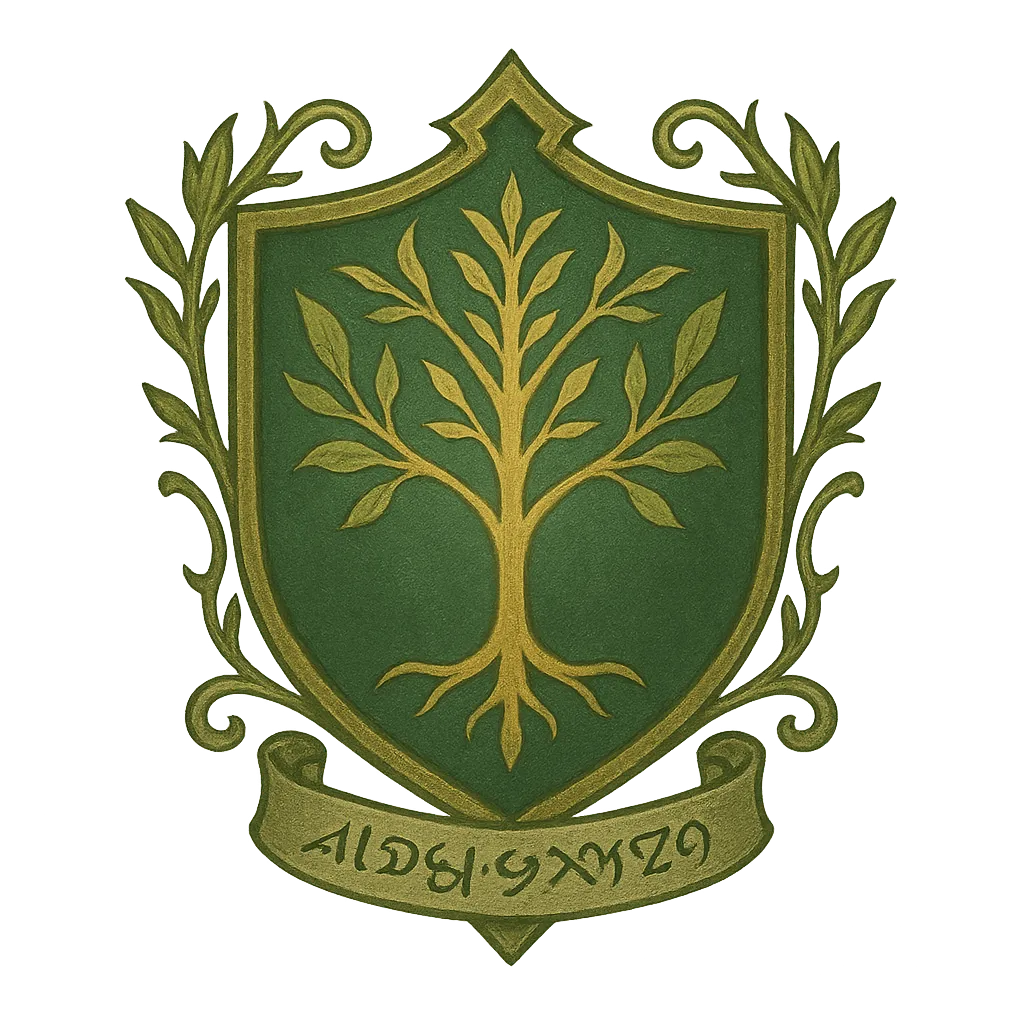
An heirloom, passed down through generations, laden with magical residue and swirling energy.

A tome containing countless ages of invaluable wisdom. A copy can be found on the night-stand of most influential leaders.







